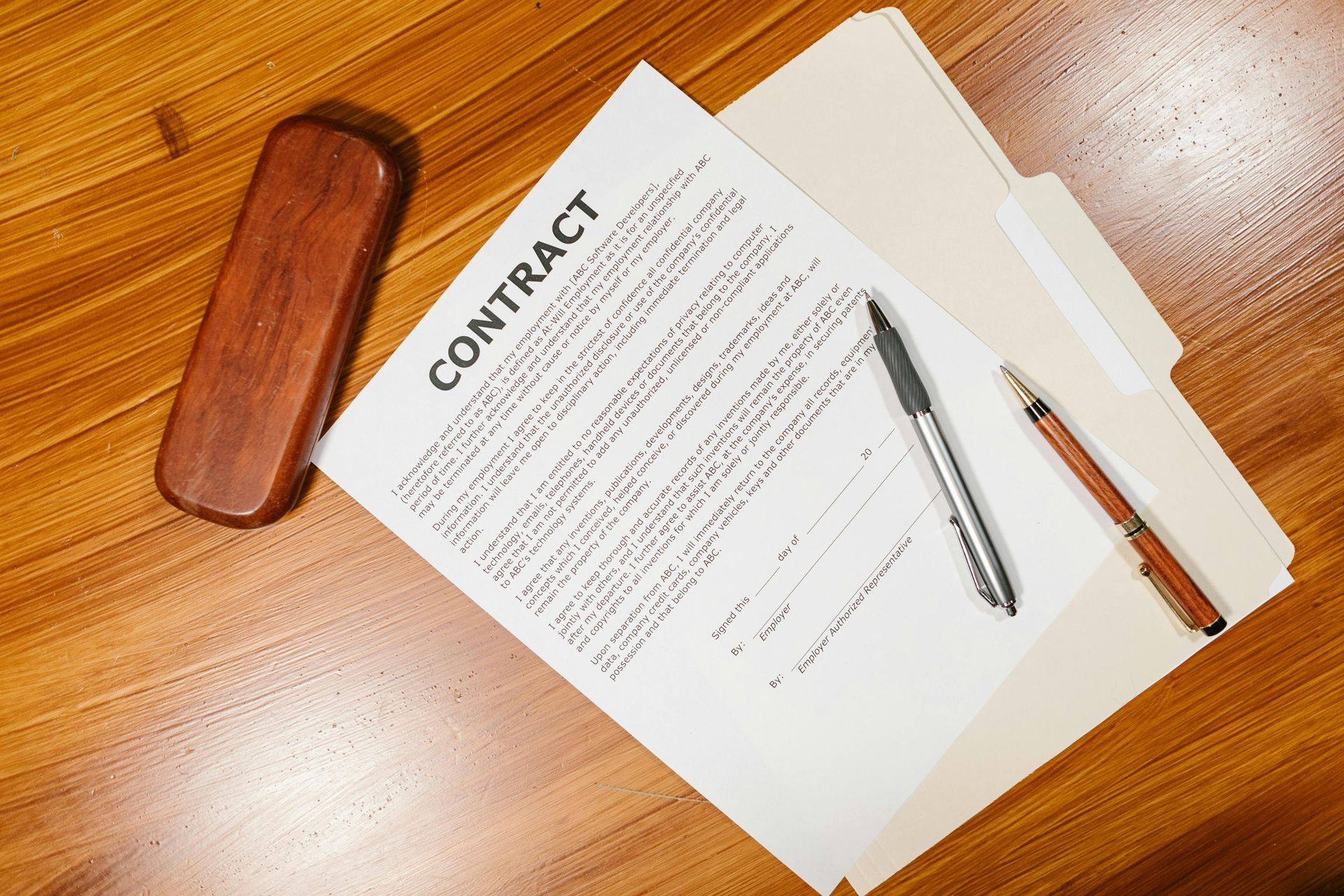The Complete Buyer’s Guide: Purchasing Mobile Homes as Real Estate
When most people think of real estate, they picture traditional stick-built homes on permanent foundations. However, there’s another category of property that often surprises buyers: mobile or manufactured homes that are legally classified as real estate. If you’re considering purchasing a mobile home that comes with land, understanding the unique aspects of this transaction is crucial for making an informed decision.

Understanding Mobile Homes as Real Estate
The classification of a mobile home as real estate depends on several key factors. Unlike mobile homes that sit in rental parks or on leased land, mobile homes classified as real estate are permanently affixed to land that the buyer will own. This classification fundamentally changes how the property is financed, titled, and legally treated.
For a mobile home to be considered real estate, it must typically meet specific criteria established by local and state regulations. The home must be permanently attached to a foundation, connected to utilities, and the wheels and axles removed. Most importantly, both the home and the land must be purchased together as a single transaction, creating what’s legally known as real property.
This distinction matters significantly because it opens doors to traditional mortgage financing options that aren’t available for mobile homes classified as personal property. It also affects property taxes, insurance requirements, and resale potential.
Financing Options and Requirements
One of the primary advantages of purchasing a mobile home classified as real estate is access to conventional mortgage financing. Unlike chattel loans used for personal property mobile homes, real estate mobile homes can qualify for traditional mortgages, including FHA, VA, and conventional loans.
However, lenders often have specific requirements for manufactured home financing. The home typically must be built after June 15, 1976, when HUD manufacturing standards took effect, and must display the HUD certification label. The home must also meet minimum size requirements, usually at least 400 square feet, and be designed for year-round occupancy.
Many lenders require that manufactured homes be permanently installed on approved foundations and properly tied down according to local building codes. The property must also meet specific site requirements, including proper drainage, access roads, and utility connections.
Down payment requirements vary by loan type. FHA loans may accept down payments as low as 3.5%, while conventional loans typically require 5-20%. VA loans, available to eligible veterans, may offer zero-down financing options. However, some lenders may require higher down payments for manufactured homes compared to traditional construction.
Considerations and Possible Title Issues
The legal aspects of purchasing mobile homes as real estate can be complex and vary significantly by state. One of the most critical steps in the process involves converting the mobile home’s title from personal property to real property, often called “retirement” of the title.
This conversion process typically requires filing specific documents with state and local authorities, permanently affixing the home to the foundation, and ensuring compliance with local zoning and building codes. Once completed, the mobile home becomes part of the real estate and is included in the property deed.
Buyers should be aware that this process can take time and may require inspections by local building officials. Some states have streamlined procedures, while others may have more complex requirements. Working with experienced professionals familiar with manufactured home regulations in your area is essential.
It’s also important to verify that previous conversions were completed properly. If a mobile home was previously converted to real property but the process wasn’t done correctly, it could create title issues that affect financing and ownership rights.
Property Appraisal Challenges
Appraising mobile homes classified as real estate presents unique challenges that buyers should understand. Traditional appraisal methods used for stick-built homes may not always apply directly to manufactured housing, potentially affecting loan approval and property values.
Appraisers must consider factors specific to manufactured homes, including age, condition, installation quality, and local market acceptance. They must also evaluate comparable sales, which can be limited in some areas where manufactured homes are less common.
The appraisal must confirm that the home meets HUD standards and local building codes, and that it’s properly installed and permanently affixed to the foundation. Any deficiencies identified during the appraisal process may need to be corrected before loan approval.
Buyers should be prepared for the possibility that appraised values may come in lower than expected, particularly in markets where manufactured homes have limited acceptance. This could affect loan-to-value ratios and require larger down payments or purchase price negotiations.
Insurance Considerations
Insurance for mobile homes classified as real estate differs from both traditional homeowners insurance and mobile home insurance for personal property. Since the home and land are owned together, standard homeowners insurance policies typically apply, but with some important considerations.
Insurance companies may have specific requirements for manufactured homes, including foundation types, tie-down systems, and wind resistance features. Homes in areas prone to natural disasters may face higher premiums or additional coverage requirements.
It’s important to ensure that insurance coverage includes both the structure and the land, and that policy limits are adequate for replacement costs. Some insurers may offer specialized manufactured home coverage that addresses unique risks associated with this type of construction.
Buyers should shop around for insurance and obtain quotes before finalizing their purchase, as insurance costs can vary significantly between companies and may affect overall affordability.
Inspection and Due Diligence
Thorough inspections are crucial when purchasing any real estate, but manufactured homes require special attention to specific systems and components. Professional inspections should evaluate the foundation, tie-down systems, electrical and plumbing connections, and overall structural integrity.
Inspectors familiar with manufactured homes can identify potential issues that general home inspectors might miss. These may include foundation problems, moisture issues, electrical code violations, or improper installations that could affect both safety and financing eligibility.
Buyers should also investigate the history of the home and land, including any previous moves, modifications, or additions. Changes made after initial installation may need to comply with current building codes and could affect insurance and financing.
Environmental assessments may be necessary, particularly for rural properties where well water and septic systems are involved. Soil conditions, drainage, and flood zone designations should all be evaluated.
Market Considerations and Resale Value
The resale market for manufactured homes can vary significantly by location and local market acceptance. While some areas have strong markets for quality manufactured homes, others may have limited buyer interest, affecting long-term appreciation potential.
Factors that can positively influence resale value include desirable locations, quality installation, attractive land features, and proper maintenance. Well-maintained manufactured homes in good locations can appreciate over time, though typically at slower rates than traditional construction.
Buyers should research local market trends and consider factors that might affect future marketability. These include community development plans, zoning changes, and demographic trends that could influence demand.
Making an Informed Decision
Purchasing a mobile home classified as real estate can offer an affordable path to homeownership, but success requires careful planning and professional guidance. Working with experienced real estate agents, lenders, and attorneys familiar with manufactured home transactions is essential.
Take time to research local regulations, financing options, and market conditions before making an offer. Consider both the immediate benefits and long-term implications of your purchase, including maintenance requirements, appreciation potential, and resale considerations.
With proper due diligence and professional support, buying a mobile home as real estate can provide quality housing at an affordable price, opening doors to homeownership that might otherwise be out of reach.
Remember that every transaction is unique, and regulations vary by location. Consulting with local professionals who understand the specific requirements in your area will help ensure a smooth and successful purchase process.
Start Your Mortgage Application with Treasure Coast Home Loans
Your Local Mortgage Broker
Mortgage Broker Port St. Lucie, Florida
Learn More About the Mortgage Process.
Check Out Our Google Verified Reviews










